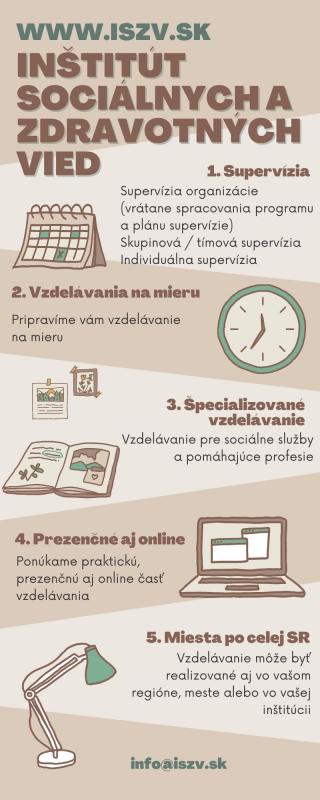 Zborník vedeckých prác z konferencie s názvom Zdravie – hybná sila ošetrovateľstva bez hraníc v PDF, ktorá sa konala v Piešťanoch v roku 2018.
Zborník vedeckých prác z konferencie s názvom Zdravie – hybná sila ošetrovateľstva bez hraníc v PDF, ktorá sa konala v Piešťanoch v roku 2018.
Zborník z konferencie Zdravie – hybná sila ošetrovateľstva bez hraníc, Piešťany, 2018 (PDF)
Zborník z konferencie Ošetrovateľstvo 2020 – trendy, zmeny a budúcnosť, Piešťany, 2017 (PDF)
 Zborník príspevkov z konferencie s názvom Ošetrovateľstvo 2020 – trendy, zmeny a budúcnosť, ktorá sa konala v Piešťanoch v roku 2017.
Zborník príspevkov z konferencie s názvom Ošetrovateľstvo 2020 – trendy, zmeny a budúcnosť, ktorá sa konala v Piešťanoch v roku 2017.
Zborník z konferencie Ošetrovateľstvo naprieč kultúrami, Piešťany, 2015 (PDF)
 Zborník s príspevkami z konferencie Piešťanský deň ošetrovateľstva, 1. ročník, ktorú organizovali Slovenské liečebné kúpele Piešťany, a.s. v spolupráci s Vysokou školou zdravotníctva a sociálnej práce sv. Alžbety, n.o. Bratislava, detašované pracovisko bl. Sáry Salkaháziovej v Rožňave a Ústavom sv. Jana N. Neumanna, Příbram, Česká republika v dňoch 12. – 13. novembra 2015.
Zborník s príspevkami z konferencie Piešťanský deň ošetrovateľstva, 1. ročník, ktorú organizovali Slovenské liečebné kúpele Piešťany, a.s. v spolupráci s Vysokou školou zdravotníctva a sociálnej práce sv. Alžbety, n.o. Bratislava, detašované pracovisko bl. Sáry Salkaháziovej v Rožňave a Ústavom sv. Jana N. Neumanna, Příbram, Česká republika v dňoch 12. – 13. novembra 2015.
Využitie projektového vyučovania na vybranej strednej škole
Usage of project training at the chosen high school
Abstrakt: Článok ponúka pohľad na alternatívnu formu vyučovania, ktorá aj v 21. storočí nie je až tak veľmi využívanou ako by mohla byť. Touto vyučovacou metódou je projektové vyučovanie. Prináša stručný opis vývoja tejto vyučovacej metódy, porovnanie s frontálnym vyučovaním, realizáciu tejto metódy, jej pozitíva a negatíva a aj výsledky výskumu, ktorý bol realizovaný na strednej škole.
Kľúčové slová: alternatívne vyučovanie, projekt, projektové vyučovanie
Abstract: The article focuses on an alternative form of teaching that is not as widely used in the 21st century as it could be. This teaching method is project teaching. It provides a brief description of the development of this teaching method, a comparison with frontal teaching, the implementation of this method, its positives, and negatives, as well as the results of research that was conducted in high school.
Key words: alternative training, project, project training
Závislosť na tabaku u sestier z pracovno-právneho aspektu v rámci manažmentu v ošetrovateľstve
Addiction to tobacco in nurses from a labor-legal aspect within nursing management
Abstrakt:
Úvod: Legislatíva zakazuje fajčenie na pracovisku vrátane zdravotníckych zariadení. Fajčenie je stále problémom, ktorý zasahuje do života fajčiarov aj nefajčiarov, povolanie sestry nevynímajúc.
Cieľ: V príspevku sa zaoberáme problematikou fajčenia v súvislosti s manažmentom v ošetrovateľstve a pracovno-právnymi aspektmi. Chceme poukázať na súvisiacu časovú a ekonomickú stratu spôsobenú fajčením sestier a komparovať názory troch skupín respondentov-sestier na fajčenie počas pracovnej doby.
Súbor a metódy: Údaje boli zbierané prostredníctvom neštandardizovaných dotazníkov v období júl 2020-marec 2021. Dotazníky boli vyhotovené v troch verziách podľa cieľovej vzorky, pre ktorú boli určené. Súbor tvorilo 381 sestier pracujúcich v zdravotníckych zariadeniach v Slovenskej a Českej republike.
Výsledky: Ročná časová strata z pracovného času v súvislosti s fajčením predstavuje u sestry fajčiarky až 15 dní a ekonomická strata pre zamestnávateľa bola vypočítaná na 862,50 EUR na jednu sestru-fajčiarku ročne. 49 % sestier-nefajčiarok a 30 % sestier-fajčiarok považuje fajčenie za determinant pracovného výkonu. Alarmujúcim zistením je nezáujem alebo neutrálny postoj k riešeniu problematiky fajčenia u sestier počas pracovnej doby zo strany vedúcich pracovníkov.
Záver: Fajčenie na pracovisku spôsobuje organizácii zníženie produktivity a zvýšenie absencií. Naše zistenia by mali byť výzvou pre zamestnávateľov, ktorí by mali začať aktívne pristupovať k riešeniu tejto problematiky, a tým aj k ochrane zdravia sestier.
Kľúčové slová: Fajčenie, Manažment v ošetrovateľstve, Ošetrovateľská starostlivosť, Pracovný výkon, Sestry.
Abstract:
Introduction: The law prohibits smoking in the workplace, including healthcare facilities. Smoking is still a problem that affects the lives of both smokers and non-smokers, including the profession of a nurse.
Aim: In this article we deal with the issue of smoking in connection with nursing management and labor law aspects. We want to point out the related time and economic loss caused by nurses' smoking and compare the opinions of three groups of nurse respondents on smoking during working hours.
Methodology and sample: The data were collected through non-standardized questionnaires in the period July 2020-March 2021. The questionnaires were prepared in three versions according to the target sample for which they were intended. The sample consisted of 381 nurses worked in hospitals in Slovakia and the Czech Republic.
Results: The annual loss of working time related to smoking for a nurse smoker is up to 15 days and the economic loss for the employer was calculated at 862.50 EUR per nurse-smoker per year. 49 % of non-smoking nurses and 30 % of smoking nurses consider smoking to be a determinant of work performance. An alarming finding is a lack of interest or a neutral attitude on the part of managers in dealing with the issue of smoking during working hours.
Conclusion: Smoking in the workplace causes the organization to reduce productivity and increase absenteeism. Our findings should be a challenge for employers, who should start to take an active approach to solving this problem, and thus to the protection of nurses' health.
Key words: Smoking, Management in nursing, Nursing care, Work performance, Nurses.
Ambrela vydala podklady pre médiá (media kit) k projektu ‚Globálne ciele a migrácia‘
Platforma rozvojových organizácií – Ambrela zastrešuje na Slovensku 29 prevažne mimovládnych organizácií, ktoré sa venujú humanitárnej pomoci, rozvojovej spolupráci a globálnemu vzdelávaniu doma aj v zahraničí. Sekretariát Ambrely nepôsobí priamo v teréne, ale plní cieľ advokačný v prospech svojich členov a pozorovateľov (napríklad v zlepšovaní podmienok pre ich prácu cez pripomienkovanie verejných politík v gescii MZVaEZ SR, MŠVVaŠ SR a podobne, buduje ich kapacity vhodnými vzdelávacími aktivitami a informuje verejnosť o našom spoločnom poslaní meniť životy a životné podmienky núdznych po celom svete k lepšiemu.
Vyšla prípadová štúdia o kampani ‘Spolu pre Etiópiu‘ a pomoci slovenských mimovládok v regióne Tigraj (PDF)
 Etiópia má za sebou dlhoročný turbulentný politický vývin a na svojom konte žiadnu históriu demokracie, na ktorú by mohla nadväzovať. A tak napriek sľubným demokratizačným reformám a oceneniam zo zahraničia spadla opäť do priepasti autoritárstva, ktoré v novembri 2020 vyvrcholilo v etnicky podmienené násilie a následnú humanitárnu katastrofu na severe krajiny – v regióne Tigraj.
Etiópia má za sebou dlhoročný turbulentný politický vývin a na svojom konte žiadnu históriu demokracie, na ktorú by mohla nadväzovať. A tak napriek sľubným demokratizačným reformám a oceneniam zo zahraničia spadla opäť do priepasti autoritárstva, ktoré v novembri 2020 vyvrcholilo v etnicky podmienené násilie a následnú humanitárnu katastrofu na severe krajiny – v regióne Tigraj.
Screeningové meranie úrovne mentálneho zdravia klientov žijúcich v zariadeniach sociálnych služieb počas pandémie choroby COVID-19
Screening measures of mental health levels of nursing homes clients during the COVID-19 pandemic
Abstrakt: Opatrenia, ktorými spoločnosť reagovala na pandémiu spôsobenú koronavírusom SARS-CoV-2, sa v jej rôznych štádiách uvoľňovali a zas sprísňovali. Karanténa spôsobená opatreniami mala častokrát za následok zhoršené psychické zdravie ľudí. Vo výskume sme sa zamerali na súbor ľudí, ktorí mali pravdepodobne najprísnejšie opatrenia spomedzi všetkých spoločenských a vekových skupín N (159). Cieľom bolo zistiť úrovne depresivity, osamelosti a celkového všeobecného zdravia klientov žijúcich v zariadeniach sociálnych služieb a zároveň zistiť, či sa úrovne menia v závislosti od veku a častosti kontaktu s rodinou. Úrovne vybraných psychologických premenných boli merané pomocou dotazníkov GHQ-12 (Goldberg, 1972) , BDI-6 (Blom et al., 2012) a ULS-8 (Hays, DiMatteo, 1987). Na dosiahnutie cieľov sme použili korelácie, ktoré ukázali, že s vekom sa úrovne premenných zvyšujú a teda zhoršujú. Z hľadiska kontaktu s rodinou možno povedať, že ľudia, ktorí zažili častejší kontakt vykazovali priaznivejšie úrovne nami vybraných psychologických parametrov.
Kľúčové slová: seniori, COVID-19, pandémia, depresia, osamelosť, celkové všeobecné zdravie
Abstract: The restriction brought about by the COVID-19 pandemic have been relaxed and tightened at various stages. The quarantine caused by the pandemic often resulted in a worsened mental health. In our research, we focused on a sample of people who had the strictest restriction almost all the time since the outbreak of the pandemic N (159). The aim was to find out the levels of depression, loneliness, general health of clients living in nursing homes and at the same time to find out whether the levels change depending on age and frequency of contact with the family. We measured the levels of selected psychological parameters using the GHQ-12 (Goldberg, 1972) , BDI-6 (Blom, et al., 2012) a ULS-8 (Hays, DiMatteo, 1987). To achieve the goals, we used correlations that showed that the parameters increase with age and thus worsen. In terms of contact with the family, it can be said that people who showed higher contact had more favorable levels of psychological parameters.
Key words: seniors, COVID-19, pandemic, depression, loneliness, general health
Význam a bariéry spolupráce rodiny a materskej školy
The importance and the issues of cooperation of a family and a kindergarten
Abstrakt: Príspevok upriamuje pozornosť na vzájomnú spoluprácu rodiny a materskej školy, najmä v kontexte adaptácie dieťaťa na prostredie materskej školy. Práve spolupráca uvedených výchovných činiteľov môže byť jedným z determinantov úspešnej adaptácie dieťaťa na inštitucionálnu výchovu. Spolupráca ma isté medzery, ktoré ovplyvňujú spokojnosť oboch strán, a preto príspevok analyzuje okrem významu aj možné prekážky spolupráce. Z analyzovaných výskumov vyplynulo, že bariérami v spolupráci rodiny a materskej školy je neochota rodičov obetovať čas prehĺbeniu vzájomných vzťahov s učiteľom, nesprávne presvedčenia rodičov o význame spolupráce, odlišné preferencie hodnôt v rodinách, ako aj neustále nové požiadavky na učiteľskú rolu. Aj napriek náročnosti súčasnej výchovnej činnosti rodičov, v kontexte pracovného vyťaženia, je možné hovoriť o aktívnej snahe rodičov participovať na spolupráci s materskou školou.
Kľúčové slová: rodina, materská škola, spolupráca, význam spolupráce, bariéry spolupráce
Abstract: The paper draws attention to the mutual cooperation of the family and the kindergarten, especially in the field of the child's adaptation to the kindergarten environment. These educational factors must cooperate so that the child can successfully adapt to institutional education. Cooperation has certain shortcomings that affect the satisfaction of both parties, and therefore the paper analyses not only the importance but also the possible issues. The analysed research showed barriers in cooperation of family and kindergarten such as reluctance of parents to spend time in order to deepen mutual relations with the teacher, wrong beliefs of parents about the cooperation importance, different preferences of values in families, as well as constant new requirements for teaching role. Despite the difficulty of the current educational activities of parents, in the context of workload, it is possible to talk about the active efforts of parents to participate in cooperation with the kindergarten.
Key words: family, kindergarten, cooperation, importance of cooperation, barriers to cooperation
Aký obraz si o individuálnej psychológii vytvárajú študenti psychológie?
What perception of individual psychology do students of psychology create?
Abstrakt: Oboznamovanie sa so základnými psychologickými smermi mnohokrát tvorí súčasť výučby nosných psychologických predmetov. V menšom počte prípadov sú realizované špecificky zamerané kurzy a hodnotenie pedagogických výsledkov často spočíva výlučne na hodnotení vedomostí. Individuálna psychológia je jedným z najznámejších psychologických/terapeutických prístupov, ktorý pracuje so špecifickým výrazovým aparátom. Správny výklad jednotlivých termínov je nevyhnutným predpokladom k porozumeniu tejto teórii. Ukazuje sa, že študenti, ktorí prichádzajú na vysoké školy môžu disponovať pomerne stabilnými miskoncepciami z oblasti psychológie. V našej práci sme vychádzali z predpokladu, že isté nepresnosti sa môžu objaviť aj v prípade poznatkov, ktoré sa týkajú individuálnej psychológie. Rozhodli sme sa prostredníctvom metódy voľných asociácií zistiť, aký obraz si o individuálnej psychológii vytvárajú tí študenti, ktorí absolvujú všeobecné psychologické predmety a aký obraz tí študenti, ktorí absolvujú špeciálny, na individuálnu psychológiu zameraný kurz. Naše výsledky naznačujú, že medzi absolventmi a neabsolventmi špeciálneho kurzu existujú kvalitatívne aj kvantitatívne rozdiely. Teoretické koncepty, ako aj o praktické aspekty individuálnej psychológie sú u absolventov špecifického kurzu viac zastúpené. U študentov neabsolventov by bolo potrebné zvýšiť povedomie o zásadných konceptoch ako cit spolupatričnosti, životný štýl a holizmus (počas výučby základných psychologických predmetov), zatiaľ čo v prípade absolventov venovať viac pozornosti tým konceptom, význam ktorých sa odlišuje od významu použitého v bežnom jazyku.
Kľúčové slová: Alfred Adler, individuálna psychológia, doménovo-špecifické vedomosti
Abstract: Understanding the ideas of fundamental psychological approaches is frequently involved in the teaching of key psychology courses. Only in a small number of cases are specific courses implemented and the evaluation of pedagogical outcomes is often based on the knowledge assessment solely. Individual psychology is one of the most well-known psychological / therapeutic approaches that operates with approach-specific terms. Proper interpretation of individual terms is therefore a prerequisite for understanding this theory. Students coming to university might have relatively stable misconceptions in the field of psychology. In our study, we assumed that certain inaccuracies may appear in the knowledge related to the individual psychology. We therefore decided, using the method of free associations, to examine what perception those students who completed general psychological courses formed about individual psychology compared to those students who completed a specific, on individual psychology-oriented course. Our results suggest that there are both qualitative and quantitative differences between graduates and non-graduates of the specific course. Theoretical concepts along with the practical aspects of individual psychology are more represented among the graduates of a specific course. Non-graduate students would need to raise awareness of key concepts such as belonging, lifestyle and holism (while teaching general psychology courses), while graduates should pay more attention to concepts whose meaning differs from that used in the common language.
Keywords: Alfred Adler, individual psychology, domain-specific knowledge
Čo nie je láska k človeku, ale majetnícke konanie v blízkych medziľudských vzťahoch
Ten, kto nemá rád druhého človeka - rodičov, životného partnera - partnerku, vlastné aj cudzie deti a ľudí vôbec, vedome i nevedome chce ľudí iba vlastniť a mať ich pod kontrolou. V hĺbke svojej Duše by najradšej totálne zotročil druhého človeka, napríklad aj v mene lásky, ktorú žiaľ, neraz iba vehementne proklamuje.
Ďalších sedemsto ton humanitárnej pomoci od slovenských mimovládok smerovalo v apríli na Ukrajinu
Slovenské mimovládne organizácie (väčšinou členské, pozorovateľské a partnerské organizácie platformy Ambrela) počas druhého mesiaca vojenskej invázie a humanitárnej krízy na Ukrajine prepravili na územie svojho východného suseda ďalších vyše sedemsto ton humanitárnej pomoci. Distribúcia pomoci je stále možná vďaka solidarite slovenského obyvateľstva.
Od začiatku vojenskej invázie Ruska na Ukrajinu pôsobí Platforma rozvojových organizácií – Ambrela, zastrešujúca 29 humanitárnych, rozvojových a vzdelávacích organizácií na Slovensku, ako koordinátor pracovnej skupiny pre oblasť humanitárnej pomoci. Platforma Ambrela tiež zbiera a vyhodnocuje informácie od svojich členov (ako napríklad: Človek v ohrození, Slovenská katolícka charita, Nadácia Integra, ADRA Slovensko, saleziánske SAVIO) a ich ukrajinských partnerov, aby s údajmi vedeli ďalej presadzovať účinnú distribúciu pomoci v regióne. Organizácie Ambrely spolu s miestnymi partnermi totiž pomáhajú nielen utečencom a utečenkám z Ukrajiny na slovenskej strane hraníc, ale adresne distribuujú humanitárnu pomoc aj priamo na území nášho východného suseda. Hneď v marci prepravili slovenské mimovládne organizácie na územie Ukrajiny 709 ton humanitárnej pomoci. Za mesiac apríl ide o podobne vysoké číslo.
Medzinárodný deň pôrodnej asistentky „100 rokov pokroku“
Slovenská komora sestier a pôrodných asistentiek si ako člen Medzinárodnej konfederácie pôrodných asistentiek (ICM), ktorá začínala ako Medzinárodná únia pôrodných asistentiek v Belgicku, pripomína storočie založenia medzinárodnej organizácie a spolupráce pôrodných asistentiek vo svete a to témou, ktorá presne špecifikuje toto výnimočné výročie „100 rokov pokroku“. Dnes počas Medzinárodného dňa pôrodných asistentiek si pripomíname 100 rokov spolupráce, ale zároveň si pripomíname 20 rokov od založenia Slovenskej komory sestier a pôrodných asistentiek ako jedinej samosprávnej stavovskej organizácie, ktorá združuje registrované sestry a registrované pôrodné asistentky na Slovensku.
Medzinárodný deň pôrodných asistentiek
Pri príležitosti Medzinárodného dňa pôrodných asistentiek, ktorý si každoročne pripomíname 5. mája, Slovenská komora sestier a pôrodných asistentiek (SK SaPA) upozorňuje na stále neriešený problém uplatňovania zákonných kompetencií pôrodných asistentiek, ktorých starostlivosť potrebujú naše ženy a ich deti. Medzinárodný deň pôrodných asistentiek sa oslavuje 5. mája od roku 1992 pod záštitou Medzinárodnej rady pôrodných asistentiek (ICM), ktorá podporuje, zastupuje a pracuje na posilnení profesijného združenia pôrodných asistentiek v globálnom meradle. Cieľom tohto dňa je osláviť a zvýšiť povedomie o význame práce pôrodných asistentiek a zdôrazniť práva žien a ich prístup k pôrodníckej starostlivosti pred, počas pôrodu a po ňom.
Čo nám ukazuje kampaň ‘Tváre migrácie‘. Publikácia ako podklady pre školy (edu kit) v PDF
 Cieľom osvetovej kampane Ambrely s názvom ‘Tváre migrácie‘ v rámci trojročného projektu 'Globálne ciele a migrácia' je rozšíriť povedomie Slovákov a Sloveniek o rôznorodosti, tolerancii a vysvetliť dôvody i výhody spolunažívania ľudí z odlišných kultúr cez konkrétne životné príbehy. Musíme tiež nahlas hovoriť o dôvodoch aj spôsoboch migrácie (prevažne tej nútenej) a ukázať, čo zažívajú ľudia na úteku pred vojnou a prečo im treba pomôcť. Od konca februára, kedy začala ruská vojenská invázia na Ukrajine, sa téme utečenectva nedá vyhnúť – pýtajú sa na ňu deti a mladí doma i v škole – na čo vhodne zareagovali svojimi aktivitami naše členské, pozorovateľské i partnerské organizácie, ako aj samotný sekretariát Ambrely.
Cieľom osvetovej kampane Ambrely s názvom ‘Tváre migrácie‘ v rámci trojročného projektu 'Globálne ciele a migrácia' je rozšíriť povedomie Slovákov a Sloveniek o rôznorodosti, tolerancii a vysvetliť dôvody i výhody spolunažívania ľudí z odlišných kultúr cez konkrétne životné príbehy. Musíme tiež nahlas hovoriť o dôvodoch aj spôsoboch migrácie (prevažne tej nútenej) a ukázať, čo zažívajú ľudia na úteku pred vojnou a prečo im treba pomôcť. Od konca februára, kedy začala ruská vojenská invázia na Ukrajine, sa téme utečenectva nedá vyhnúť – pýtajú sa na ňu deti a mladí doma i v škole – na čo vhodne zareagovali svojimi aktivitami naše členské, pozorovateľské i partnerské organizácie, ako aj samotný sekretariát Ambrely.
Jednou z projektových aktivít je aj vydanie materiálu pre školy: ‚edu kit’ s podporou EÚ cez program DEAR aj SR cez SlovakAid.
K stiahnutiu a prečítaniu je tu v PDF: https://tvaremigracie.ambrela.org/wp-content/uploads/2022/04/Edu_kit_Amb...
- « prvá
- ‹ predchádzajúca
- …
- 5
- 6
- 7
- 8
- 9
- 10
- 11
- 12
- 13
- …
- nasledujúca ›
- posledná »


























